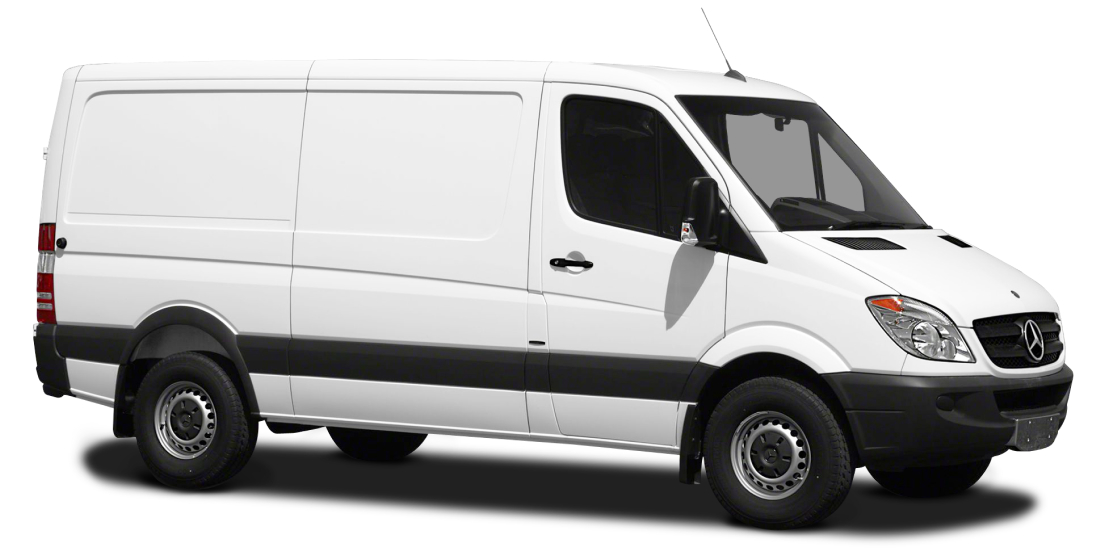We give you
Van insurance

Why is Van insurance so expensive?
As a Van driver, you may already be aware of the significant cost differences between Van and car insurance. While there are many reasons for this, it all comes down to risk. When using a Van for business use, there are a number of added risks involved that you need to be protected against. Understanding what impacts risk and how insurance premiums are calculated will help give you better insight into why Van insurance is more expensive than car insurance.

What are the main contributing factors for calculating Van insurance costs?
Van insurance costs change regularly and are primarily based on age, gender, where you live and what you plan to use your Van for. Statistics also play a big role in the calculation of insurance cover and the rise in vehicle theft, uninsured drivers and insurance fraud are also big contributors to the rising costs.
Are you under 25?
Regardless of what type of vehicle you drive, if you’re under 25 then you’ll
automatically be labelled a high risk.
Statistically speaking, under 25’s make up a staggering 85% of all serious road accidents which is
why age is always a
primary consideration when calculating an insurance premium.
In most cases, age is also directly relevant to driving experience. Younger drivers have less
experience and pose a
higher risk than older, more established road users. Your insurance company will weigh in heavy on
your premium if
you’ve just passed your test for example.
Your address
For insurance purposes, each and every postcode in the UK is filtered into a risk category. These categories are directly linked with crime rate statistics in any given area. They will be used to evaluate and determine if there is a low, medium, or high risk of vehicle theft, break in or vandalism in your area. If you are keeping your Van in a high-risk location, your likely to see a rise in the overall cost of your Van insurance.
Your driving experience
In terms of statistics, the less experience you have behind the wheel makes you more likely to be involved in an accident. A van driver with a clean licence which has been held for 15 years is going to be looked upon as a lower risk compared to an 18-year-old who’s just passed their test, so it’s fair to assume that age and experience are a combination factor. While it may seem unfair, statistics don’t lie and the longer you’ve held your licence will be directly relevant to your experience on the road. Older, more mature drivers will always be deemed a lesser risk.
Your driving history
Your driving history is going to play a big part in what you pay for your Van insurance. If you’ve never had an accident, made a claim, or been caught speeding, you should have nothing to worry about. Anything less than perfect and your history is likely to follow you around for at least 3 years and will certainly add to an increase in your insurance premium.
The Van you drive
This one may seem obvious, but many people still fail to realise that the
make, model, and age of their Van is going to
contribute heavily to the cost of Van insurance.
Vans tend to be bigger and weigh more than your average car and as a result, they need bigger and
more powerful engines.
In the eyes of an insurance company, a bigger Van means a bigger risk. The type of Van you drive
will be placed into an
insurance group. The higher the group, the higher the premium.
For example, a 3-year-old Citroen Berlingo is classed as insurance group 1E and will be cheaper to
insure than a
Mercedes Sprinter which sits in group 19.
Whatever Van you chose to drive, you should consider carefully if it really meets the requirements
for the business you
run. If you don’t need a big van, consider downsizing to help bring down the cost of Van insurance.
Is your Van modified?
If you alter the look, performance, or weight of your Van, its likely to
cost you more to insure it. You must declare
anything that’s non-factory standard to the insurance company or you could run the risk of
invalidating your policy.
Having a modified Van is not looked upon favourably. Even if its directly business related,
modifications are often
expensive and add extra weight, while performance mods make your Van more attractive to thieves. All
this simply adds to
extra risk and you’ll soon see your premium skyrocket.
Private or Business Use
Insuring a Van for private use will be considerably cheaper than commercial
Van insurance. Social, domestic and pleasure
use is understandably cheaper as it does not present the same risks as a Van that’s used for
business purposes. If you
are insuring your Van for business use, the chances are you will spend a lot more time on the road
whilst transporting
goods or carrying expensive tools. This equates to higher risk from theft, accident, loss, or
damage.
You must specify exactly what you intended to use the vehicle for. Your insurance premium is going
to be directly
effected by this alone. Some classes of use are riskier than others and therefore warrant a higher
cost.
Your Job
What you do for a living and what you use your van for on a daily basis is going to play a big role in determining the cost of your cover. Van insurance policies differ substantially depending on the specified use of the vehicle and what risks it may be exposed to in day to day business operations.
What cover you choose
Van insurance comes in 3 main levels of cover. Third party only, third party
fire & theft and fully comprehensive. Each
level of cover offers different levels of protection. Naturally, the more protection you have, the
higher your premium
will be.
Although its an easy way to save money, you should think carefully before you consider reducing your
cover and make sure
you have adequate protection for your Van and your business.






